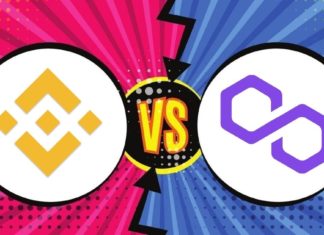A blockchain-based app, Twiga, helps small and medium business in Kenya to get money for pumping their businesses. “My prayers have been answered,” says Janeffer Wacheke, a fresh-vegetable seller, who is using the technology, writes Bloomberg.
The problem can be largely narrowed to the fact that Kenyan banks have “trouble measuring the creditworthiness of traders in the country’s $20 billion informal economy.” The issue is multifaceted but Habil Olaka, the chief executive officer of the Kenya Bankers Association, points out that it is partially because small businesses are treated as a group. This means that individual sellers, like Wacheke, experience troubles when securing funds which are crucial for their businesses.
This problem is addressed by Twiga, an app developed by International Business Machines Corp. It helps small Kenyan entrepreneurs access loans on mobile phones so that they can purchase the necessary products and have them delivered. This, in turn, means economizing on going back and forth to get fresh products and transport them.
“It’s cutting her costs and helping her build a credit track record,” says Bloomberg referring to Wacheke.
During an eight-week pilot program, Twiga has processed more than 220 loans for small-food kiosks, “the loans averaged about 3,000 shillings ($30) each and helped boost order sizes by 30 percent and the profits for each retailer by 6 percent, according to the companies.”
This is a big step for Kenya which like most other African countries has a hard time securing growth in the region because of lack of finances. In Kenya alone, the estimated demand for small and medium enterprises is around $6.5 billion a year, according to a Nairobi-based 4G Capital which emphasizes that “Sub-Saharan Africa has some way to go in building the financial infrastructure needed for MSMEs.”
4G Chief Executive Officer Wayne Hennessy-Barrett also adds, “if a small-shop owner can take 10 $200 loans over the course of a year and there are 3.25 million small shop owners and 10 times that number of traders, you’re talking about a lot of people who need to buy inventory and sell it and don’t have access to a financial product designed around their needs.”
Solomon Assefa, a vice president at IBM Research in Kenya, points out that Twiga’s advantage is that blockchain-based credit history does not change and therefore “this information allows the banks to expand their reach, the shopkeeper to access credit and the farmer to access the market.”
Despite the fact that Twiga is showing positive results, Olaka believes that it is not the ultimate cure, even though it has the potential of solving problems for people like Wacheke.
This example illustrates how the new technology helps developing nations progress. Previously, we wrote about the story of Richard M. Bagorogo from Uganda who earned in 18 months from Bitcoin more than what he could make in 10 years on his normal salary. Meanwhile, Venezuelans turn to Bitcoin as an alternative store of value to deal with the country’s hyperinflation.
Check out the 22nd episode of our podcast “Tackle the Sea” where we discuss how cryptocurrencies and blockchain transform the troubled societies across the world.




























